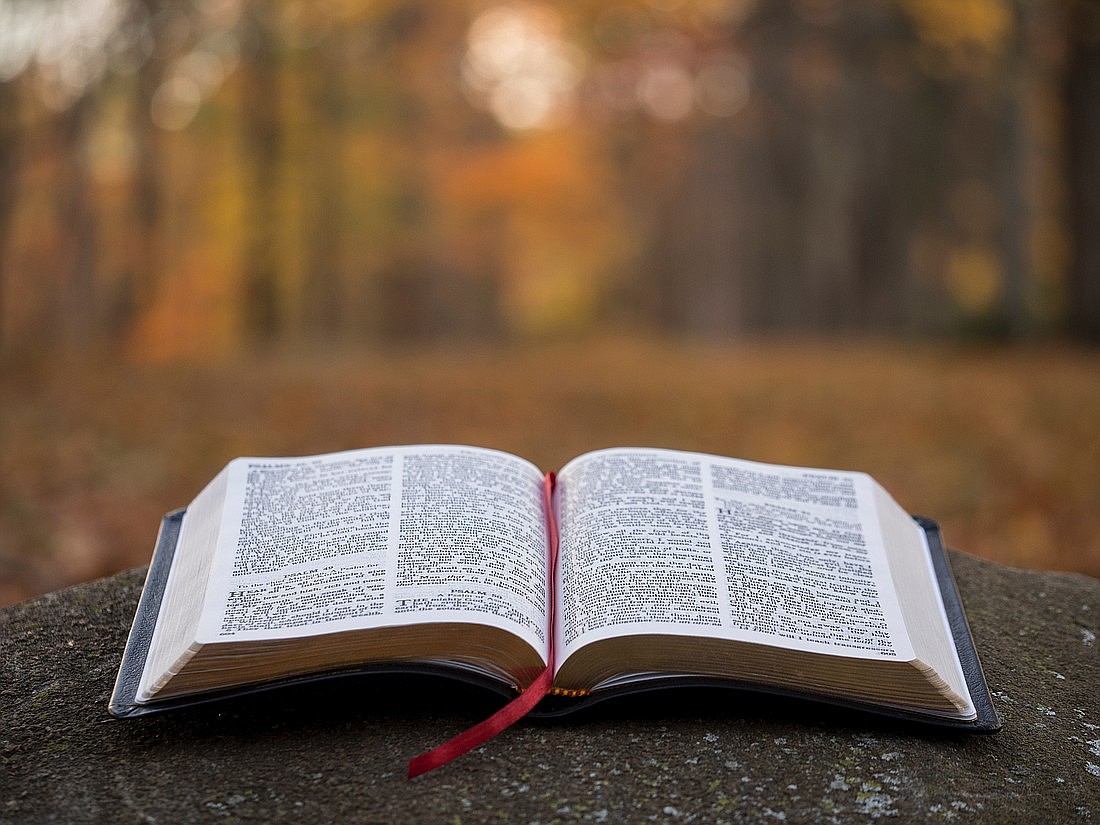August 14, 2024 at 9:17 a.m.
The lessons of St. Thomas Aquinas
Over the past four weeks, we have been reading from the Evangelist John’s sixth chapter, the “Bread of Life Discourse.” Last week, we studied the theology of transubstantiation, the doctrine of the Real Presence of Christ in the Eucharist. This week, I’d like to look into one of the great saints of our Church, the Angelic Doctor, St. Thomas Aquinas, and his immense and unique contribution to the Catholic understanding of the Eucharist.
For my flesh is real food and my blood is real drink. Whoever eats my flesh and drinks my blood remains in me, and I in them. — John 6:56-57
Bishop Robert Barron of Word on Fire, the great modern Roman Catholic writer and dialoguer with contemporary culture, wrote a book many years ago on St. Thomas, titled “Thomas Aquinas: Spiritual Master.” I read it while I was a seminarian and it had a profound impact on my own thinking about theology, spirituality and the Eucharist.
Bishop Barron has one main point running throughout his text: Far from being a dry and dusty old philosopher who created obscure doctrines that are difficult to understand, St. Thomas was a man in love with Jesus Christ. All the theology that he wrote, all the philosophy that he helped to clarify, were a deep, beautiful labor of love for Thomas. For Thomas, there was no distinction between philosophy and theology, between dogma and spirituality, between our prayer life and our “real” life.
All was one, and Thomas, ultimately a scriptural theologian, was truly, deeply enraptured with the one Divine Person with two natures, human and divine, the one who is fully God and fully human, Jesus Christ, our Lord.
Jesus was the center of his life. The Doctor Communis, the universal doctor of the Church, had a tremendous mystical experience on Dec. 6, 1273, the feast of St. Nicholas. While writing about the Eucharist, while studying and trying his best to offer a synthesis of all the Church’s teachings on the Eucharist, the Corpus, the figure of Christ on a crucifix, spoke to Thomas. It was Our Lord directly speaking to this Dominican friar. The words spoken to Thomas were “Bene scripsist de me, Thoma. Quam ergo mercedem accipies.” The translation of those words might go like this: “You have written well of me, Thomas. Whatever it is you desire, I will grant you.”
Imagine that Our Lord Jesus spoke directly to you. Imagine, just for a moment, that He said to you, and to you alone, whatever you most wanted in life, He would grant to you. What would you say? What would I say? Just for a moment, putting aside all the things that I would want to say, what would I really say? Would I ask for power, for prestige, for material goods, for blessings on my family and friends? For what would I ask? What would you say?
Well, Thomas looked at his Lord with love and said four little words: “Nil nisi te, Domine.” What does that mean? Quite simply, “Nothing but you, Lord.” Why would he say that? Why would he say that when he could have asked for so many other things, good things, practical things, things that would help make the world a better place, that could help make his life happier? I believe that Thomas said that because he knew, above all else, that if you have the Lord Jesus and Him alone, you have everything! When we have the Eucharist, we have Jesus, truly, substantially present in the form of the consecrated bread and wine.
Not simply a sign, not merely a symbol, the Eucharist whom we celebrate Sunday after Sunday, weekday after weekday in our churches and chapels, is Our Lord, just as He Himself promises to us in the Bread of Life Discourse which we proclaim this Sunday. Jesus tells us in Sunday’s Gospel:
“Amen, amen, I say to you,
unless you eat the flesh of the Son of Man and drink his blood,
you do not have life within you.
Whoever eats my flesh and drinks my blood
has eternal life,
and I will raise him on the last day.”
He tells us that He Himself is the Bread of Life. It is the Bread of Life on which we feast. It is the Lord Jesus Himself who lives in us, who become living tabernacles of Christ, the most high God. Thomas tells us that “the things that we love tell us what we are.” Do we love Jesus Christ in the Eucharist with our whole heart and soul? Do we try our best to learn the doctrine of our Church about the Eucharist and then to communicate them to the world? This is our task and challenge given to us from the Bread of Life Discourse.
- Tanzania’s Cardinal Pengo remembered as giant of faith, a ‘towering presence’ for Africa
- Bishops urge prudence, prayer, invoke Guadalupe’s protection as violence erupts in Mexico
- St. Francis’ relics open to public for first extended veneration in 800 years
- ‘We will grow in wisdom, holiness together,’ new bishop of Tucson, Ariz., tells faithful
- Pope renews ‘heartfelt appeal’ for ‘immediate ceasefire’ in Russia-Ukraine war
- Full text: Pope Leo XIV’s Angelus address given February 22, 2026
- God offers new possibilities, not prohibitions, with his invitation to love, pope says
- Find comfort, strength in Eucharist, pope tells attendees at LA Religious Education Congress
- Pope Leo XIV tells priests not to use AI to write homilies or seek ‘likes’ on TikTok
- Historical novel pitches Christian compassion against ideologies of hatred








Comments:
You must login to comment.